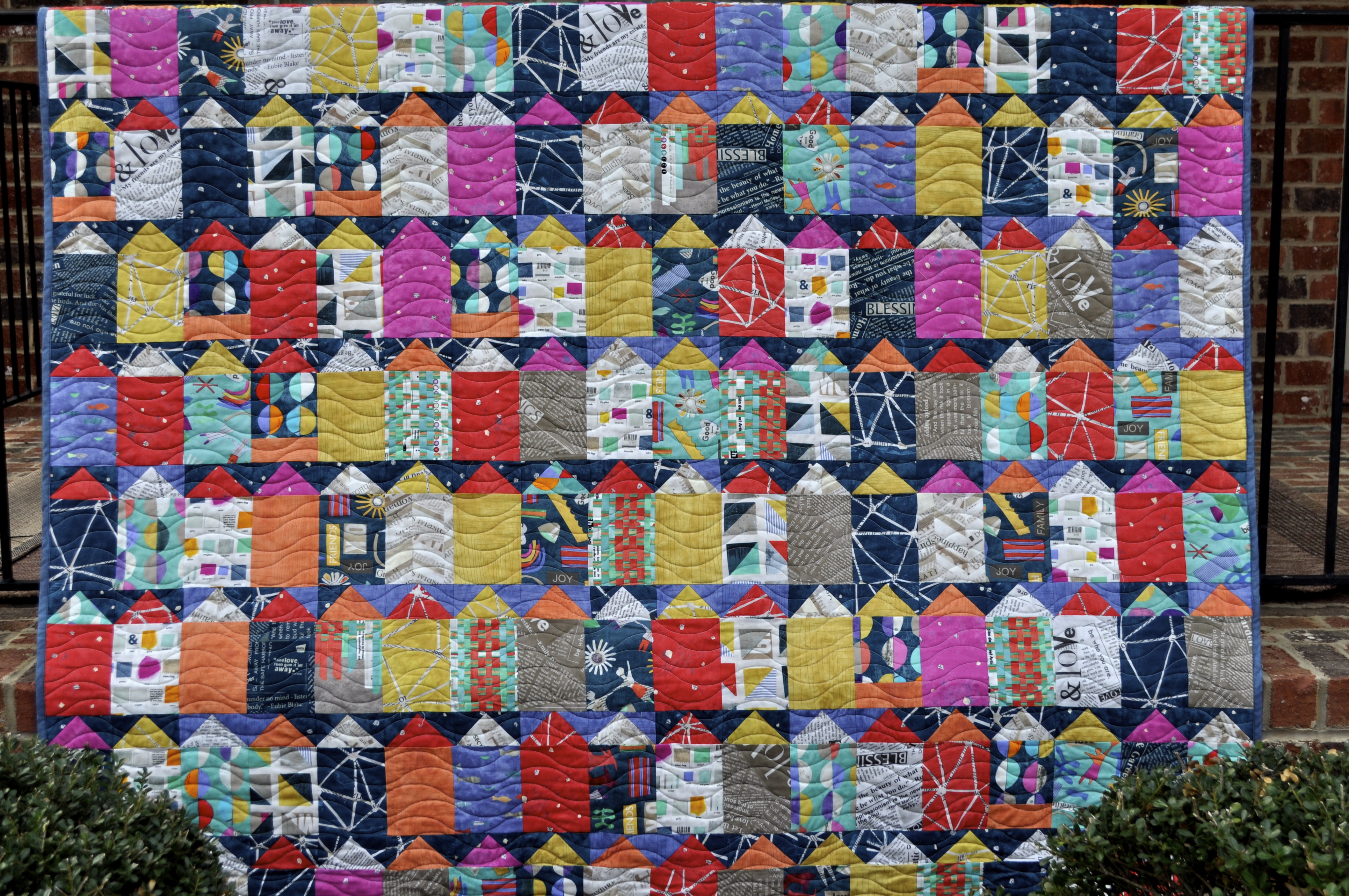Hello, quilt-alongers! (Or is it quilters-along? I never know.) I am so sorry to be posting the week 1 post so late in the week. The truth is, I've been putting off writing this post in the hopes of completing my Part 1 but -- and I'm you see where this is going -- I wasn't able to keep up. No worries -- I'll still fill this post with tips, tricks, and plenty of eye candy for all of you playing along. And for those of you that make it to the end of the post, look out for a fun giveaway!
Now, the first thing you need to know is that the published pattern has a few errors. Quiltmania has been great about correcting diagrams and publishing errata. One of these mistakes is in section 1 and, more specifically, diagram 9 (pg. 61). Click HERE to download the correction for Diagram 9 and click HERE to download the other corrections. Or, you could borrow Kerry's great idea and simply print the diagram below and tape it over the incorrect one in your magazine:

Even though I haven't been able to complete my part 1 yet, I've certainly been following along with all of the action on Instagram at #mysmallworldqal. The general consensus seems to be that: (1) the piecing is quite small; (2) striking the right balance of low volume prints for the sky can be challenging; (3) participants are finding the small piecing to be quite time consuming; and (4) despite 1-3, this project is a ton of fun!
Since section 1 starts with piecing the patchwork sky, I've taken particular note of how people are handing that part. It's been interesting to see that some quilters are sticking to straight low volume, others are introducing bits of blue, others are leaning towards a sunny yellow sky, and at least one quilter that I know of (Angela of Cut to Pieces) has chosen to piece a fabulous dark night sky.
The best place to see all of the amazing work going on so far, of course, is to follow the #mysmallworldqal hashtag on Instagram. But for some immediate visual inspiration, I've collected a few beautiful work-in-progress shots from a variety of Flickr users:
 |
| Here's co-host Kerry's completed part 1. Amazing! |
 |
| Part 1 completed by Karen C. / Flickr user @Spetziemom |
 |
| Part 1 completed by Courtney / Flickr user @courtiepie |
 |
| Partially completed part 1 by Flickr user @silort |
 |
| Partially completed part 1 by Eva-Marie / Flickr user @zusjeb.blogspot.com |
 |
| Partially completed part 1 by Sherri / Flickr user @RebeccaMaeDesigns |
For those quilting along, have any tips or tricks to share with your fellow quilters? As for me, I've been brainstorming some shortcuts that might make this daunting quilt a bit easier to tackle. First, I'm wondering if the sky has to be as scrappy as Jen Kingwell's version. I've got my eye on this print from the upcoming First Light collection by Eloise Renouf for Cloud 9 fabrics to use in large squares rather than the tiny patchwork:

The other things that can definitely make life easier when making this quilt are cheater prints. If there are parts of the quilt that use techniques with which you are uncomfortable, or just want to swap out a complicated piece section for a single cut of fabric, a good cheater print will still give the look of the quilt without having to tackle every piece of patchwork. (For a good example, take a look at diagram 13 in part 2 of the pattern.) I've stocked up on a few colors of this great print by Suzuko Koseki for Yuwa (
currently on sale at Pink Castle Fabrics!)
Here's another one that I found online at
Superbuzzy (multiple colors available):
One thing I am definitely not interested in doing in hand-sewing hexagons. So when I saw diagram 25 in part 5 of the pattern, I knew this was a job for a cheater print. I found this great cheater print (also at
Superbuzzy) that fits the bill perfectly.
Next, when I see all of the half-circle motifs throughout the quilt (see part 1 illustration 9, part 3 illustration 17, and the half dresdens in part 5), I can't help but think there's some way to use Melody Miller's viewfinder fabric from Playful (for Cotton + Steel) to create this effect.
And speaking of Playful, I know there's GOT to be some way to use this print to great effect in this quilt top. I'm just trying to figure out the best way how ...
And finally, if you're as terrified of / frustrated by handwork and things like needle-turn appliqué, then repeat after me: raw-edge fusible appliqué is your friend. If it's a technique you've never tried before, then a simple Google search will return lots of great tutorials to get you started. Here's one that shows just about the same technique that I use (though I prefer to use my machine's blanket stitch or zig-zag stitch rather than a straight stitch):
Are you quilting along and have finished Part 1? Join the link-up party below and share your quilt! I'll choose one post from the list below to win a special fabric giveaway prize -- some items from my stash custom selected especially to coordinate with your quilt -- sometime next week.
Happy sewing!














































